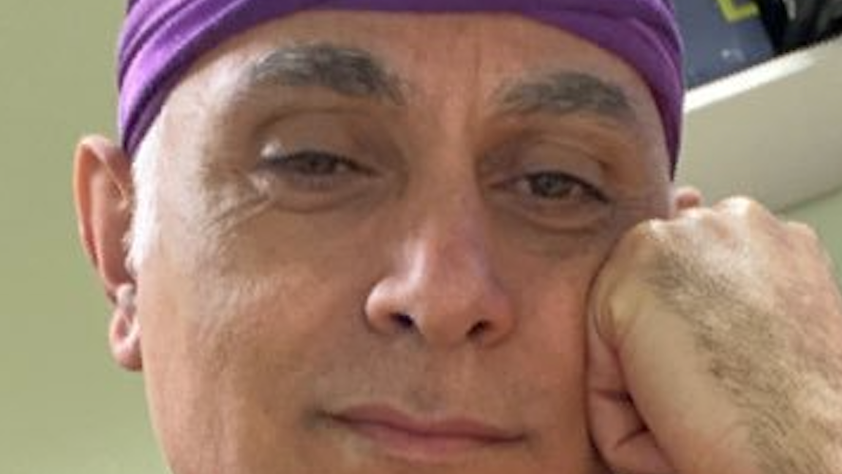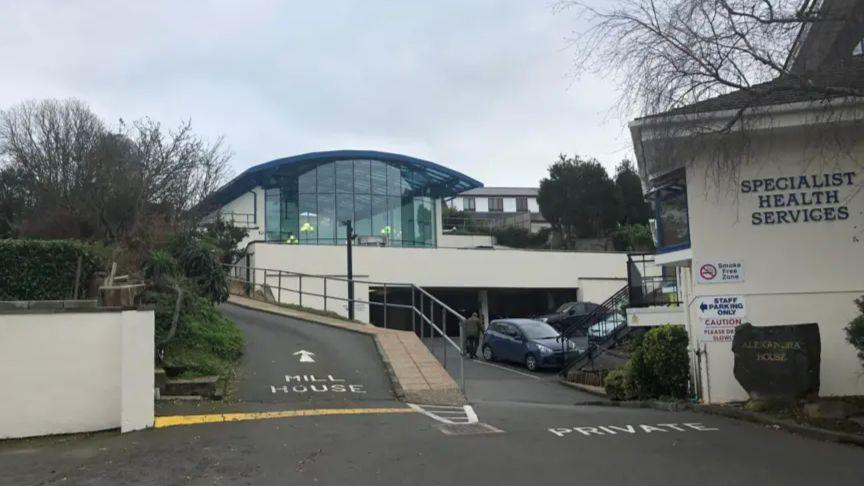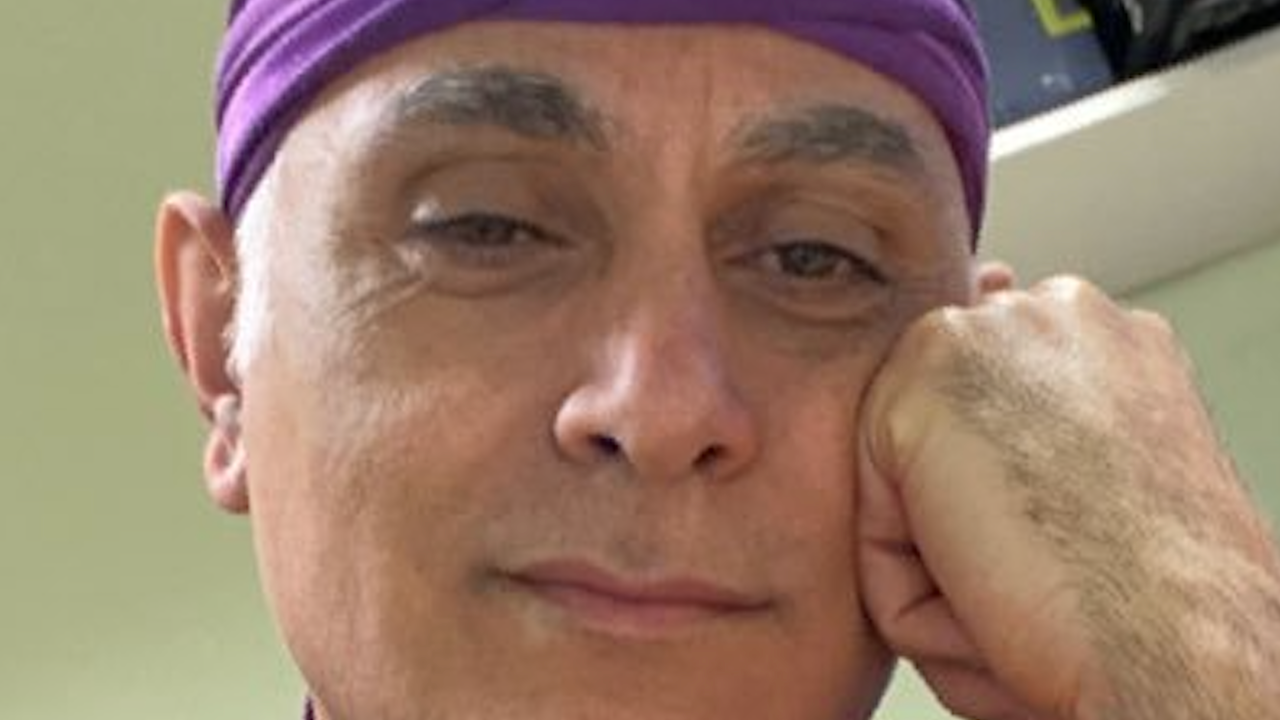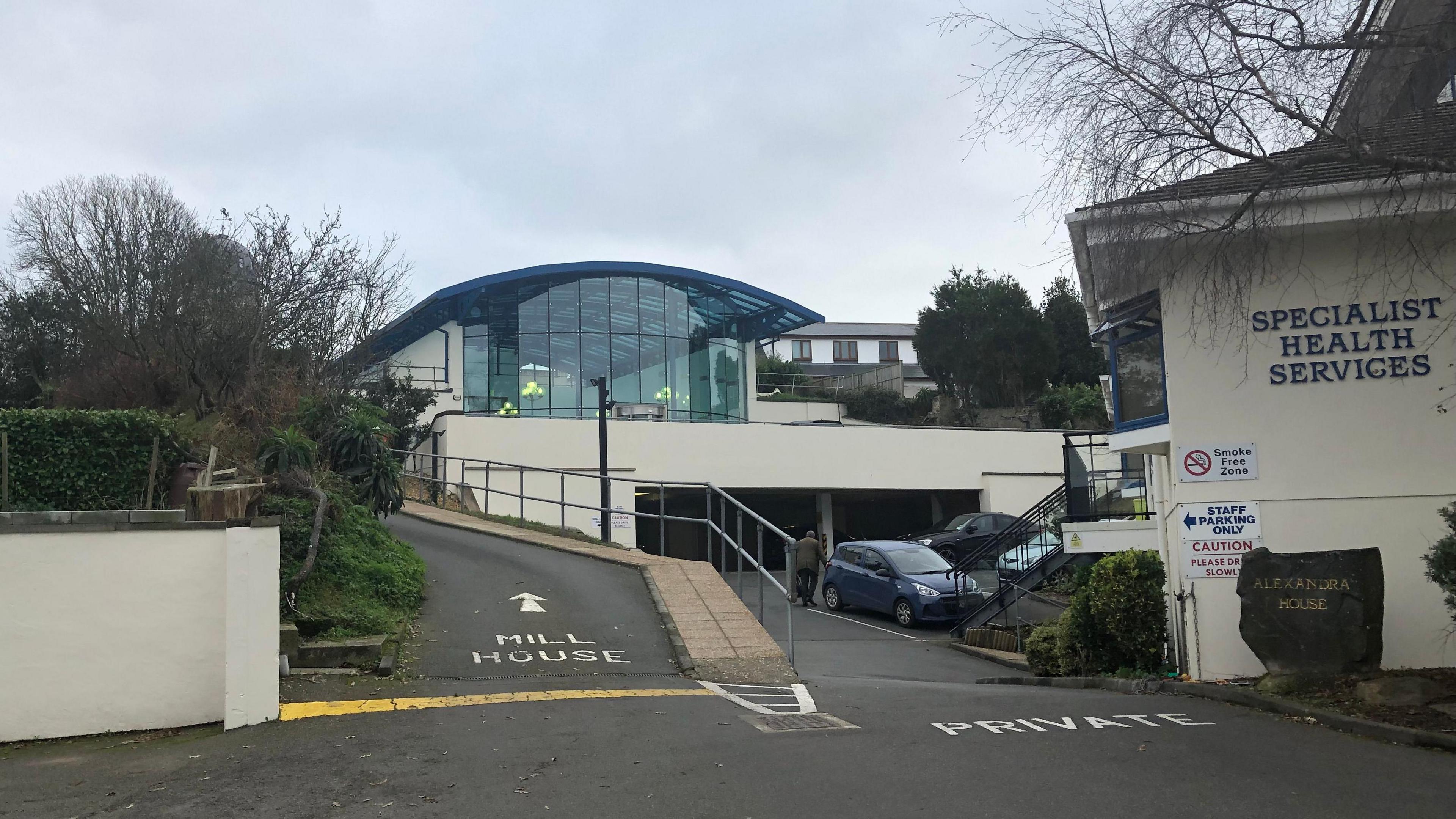Doctor's counsel defends tribunal decision

Dr Ali Shokouh-Amiri worked as a partner at the Medical Specialist Group (MSG) in Guernsey from 2016 to 2019
- Published
A doctor's counsel has defended a decision by a medical tribunal to allow his client, who admitted removing the ovaries of two women without consent, to continue practising.
Dr Ali Shokouh-Amiri was given a warning by the Medical Practitioners Tribunal Service (MPTS) at a hearing in February.
Dr Shokouh-Amiri, who worked as a partner at the Medical Specialist Group (MSG) in Guernsey from 2016 to 2019, faced a range of allegations relating to six patients under his care there.
Ben Rich, for Dr Shokouh-Amiri, argued the tribunal had "grappled" with complicated evidence before coming to their decision and urged the judge to look at "underlying evidence" when considering the tribunal's decision.
The Administrative Court at the Royal Courts of Justice in London earlier heard the General Medical Council (GMC) was appealing the tribunal's outcome on four grounds.
Jenni Richards KC, for the GMC, said three of the grounds for appeal related to how the tribunal dealt with findings of fact and the fourth was the decision by the panel that Dr Shokouh-Amiri's fitness to practice was not impaired.
At the tribunal, Dr Shokouh-Amiri admitted hugging patients, performing intimate examinations without a chaperone, and it was found proven he had rubbed or touched a patient's leg, as well as hugged her following a consultation.
He faced more than 100 allegations of inappropriate behaviour with 24 instances proven.
Ms Richards said she was asking the court to allow the appeal and send the case for a further tribunal hearing with a different panel.

The GMC is appealing a decision made earlier this year by the Medical Practitioners Tribunal Service
The first ground of appeal related to one of the patients known as Patient B, the court heard.
The allegation was on 30 May 2018 Dr Shokouh-Amiri performed surgery on Patient B at the Princess Elizabeth Hospital and failed to check the ureters at the time of the procedure, but the tribunal found this allegation not proven.
Ms Richards said there was a "complete and utter failure" to address the central issue of the allegation.
Defending Dr Shokouh-Amiri, Mr Rich said the tribunal panel had dealt with "a complicated picture of signs and symptoms and probabilities".
"My submission is that if you look at the underlying material you can infer they did grapple with the issue," he said.
The second ground of appeal related to Patient F and allegations she had made regarding medical examinations.
Some of these allegations were found not proven by the tribunal.
Earlier in the hearing, Ms Richards said the tribunal had "misunderstood relevant evidence" and given inadequate reasons for decisions.
Mr Rich said: "It wasn't suggested to the tribunal that Patient F was flat out lying - it was suggested she was confabulating."
He cited examples of what he suggested was the patient doubting her recollections.
"The tribunal has reasonably taken her doubts into consideration," he said.
'Underlying evidence'
The third ground of appeal related to the GMC claim that the allegations of each patient were only considered separately.
Mr Rich urged the judge to look at the "underlying evidence" to determine whether the decision would be rendered "unjust" by this.
He was yet to defend ground four of the appeal - that the tribunal's approach had been "wrong" and "upholding public confidence and standards required a finding of impairment".
Dr Shokouh-Amiri currently works as a consultant in obstetrics and gynaecology at Mid and South Essex NHS Foundation Trust and at Southend Hospital.
The hearing was adjourned for further evidence to be heard.
Follow BBC Guernsey on X, external and Facebook, external and Instagram, external. Send your story ideas to channel.islands@bbc.co.uk, external.
Related topics
- Published9 October

- Published14 February
